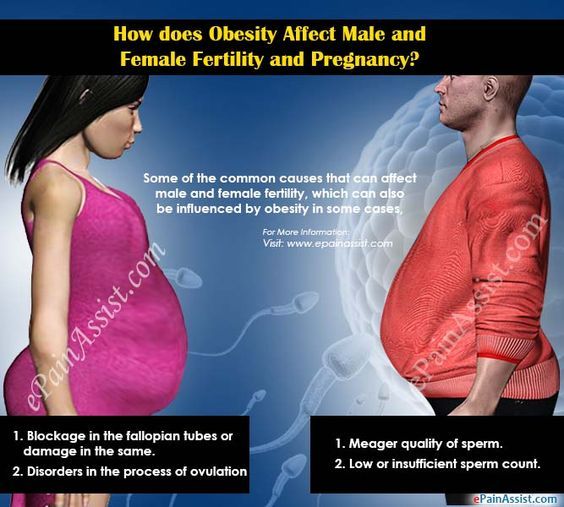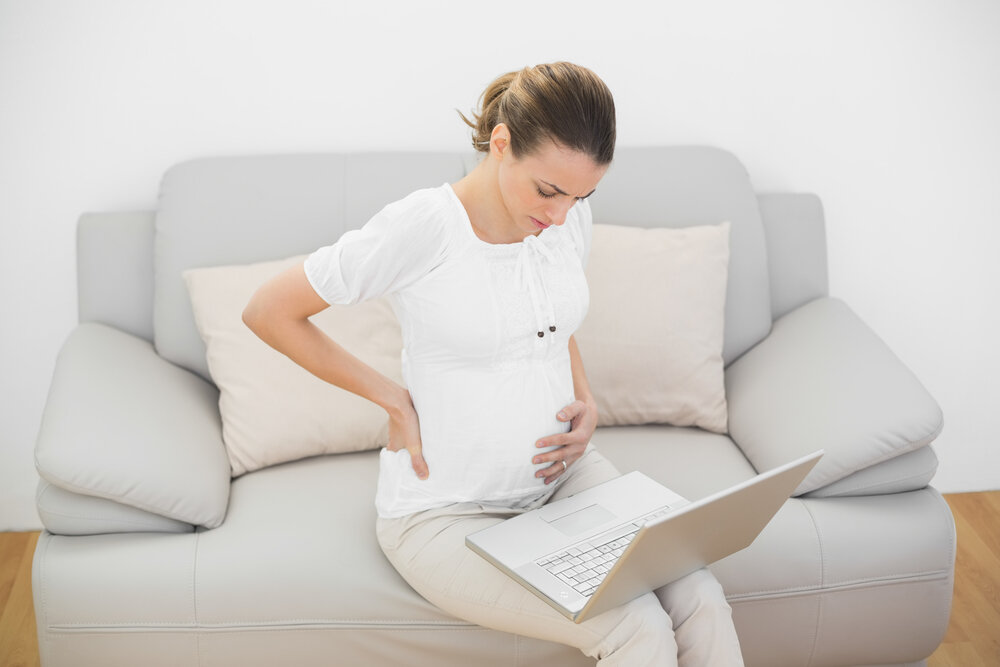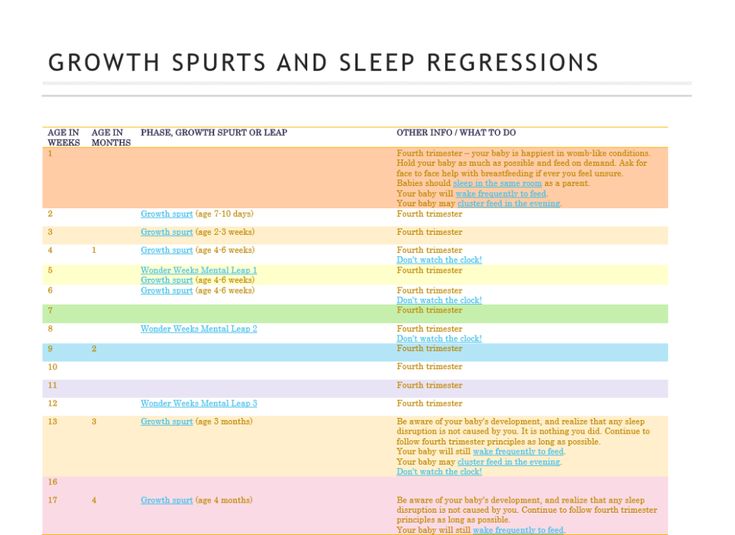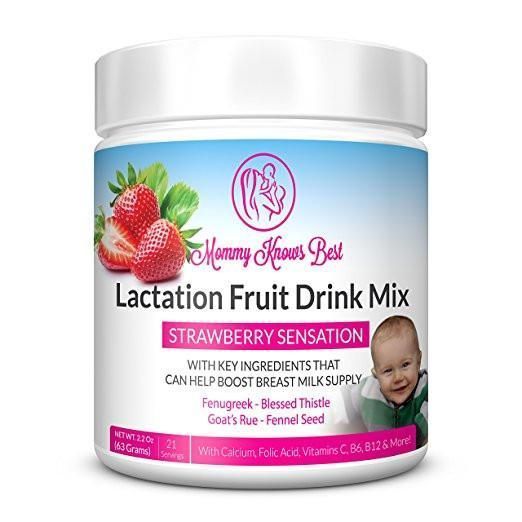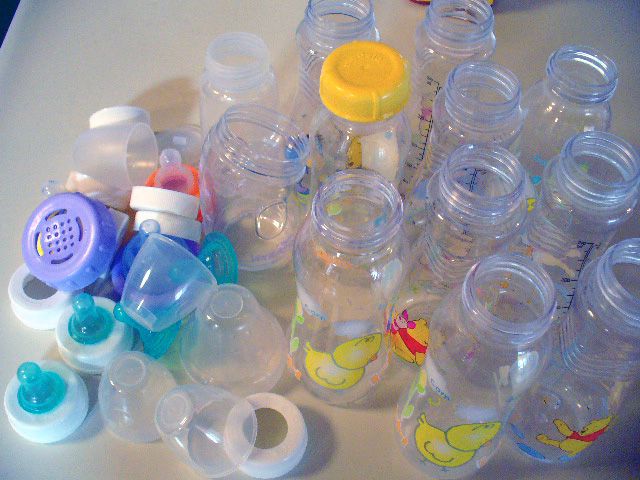How does alcohol affect pregnancy
Drinking alcohol while pregnant - NHS
Experts are still unsure exactly how much – if any – alcohol is completely safe for you to have while you're pregnant, so the safest approach is not to drink at all while you're expecting.
Is it safe to drink alcohol when pregnant?
The Chief Medical Officers for the UK recommend that if you're pregnant or planning to become pregnant, the safest approach is not to drink alcohol at all to keep risks to your baby to a minimum.
Drinking in pregnancy can lead to long-term harm to the baby, with the more you drink, the greater the risk.
How does alcohol affect my unborn baby?
When you drink, alcohol passes from your blood through the placenta to your baby.
A baby's liver is one of the last organs to develop and does not mature until the later stages of pregnancy.
Your baby cannot process alcohol well, and exposure to alcohol can seriously affect their development.
Drinking alcohol during pregnancy increases the risk of miscarriage, premature birth and your baby having a low birthweight. It can also affect your baby after they're born.
Drinking during pregnancy can cause your baby to develop a serious condition called foetal alcohol spectrum disorder (FASD).
FASD can cause problems with:
- learning and behaviour
- joints, bones, muscles and some organs
- managing emotions and developing social skills
- hyperactivity and impulse control
- communication, such as problems with speech
The risk is likely to be greater the more you drink.
How to avoid alcohol in pregnancy
It may not be as difficult as you think to avoid alcohol completely during pregnancy, as many women go off the taste of alcohol early in pregnancy.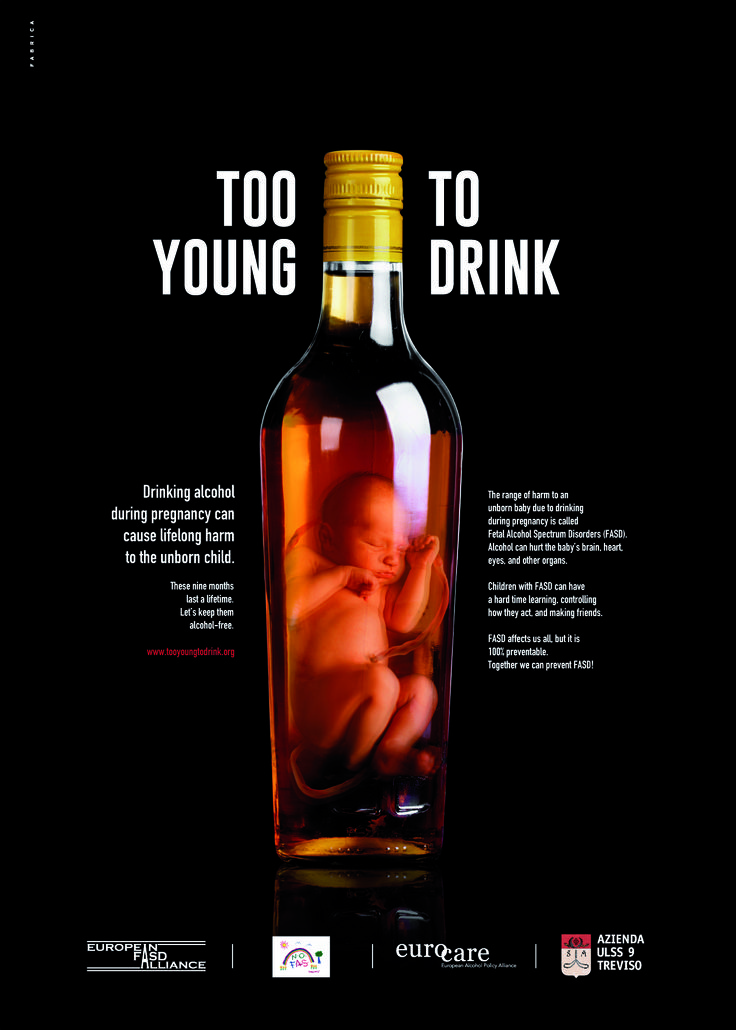
Most women do give up alcohol once they know they're pregnant or when they're planning to become pregnant.
Women who find out they're pregnant after already having drunk in early pregnancy should avoid further drinking.
However, they should not worry unnecessarily, as the risks of their baby being affected are likely to be low.
If you're concerned, talk to a midwife or doctor.
What is a unit of alcohol?
If you do decide to drink when you're pregnant, it's important to know how many units you are consuming.
One UK unit is 10 millilitres (ml) – or 8 grams – of pure alcohol. This is equal to:
- just under half a pint of cider (218ml) at 4.5% alcohol by volume (ABV: you can find this on the label)
- just under half a pint of beer (250ml) at 4% ABV
- a single measure of spirit (25ml), such as whisky, gin, rum or vodka, at 40% ABV
- just under half a standard glass of wine (76ml) at 13% ABV
You can find out how many units there are in different types and brands of drinks with the Drinkaware unit and calorie calculator.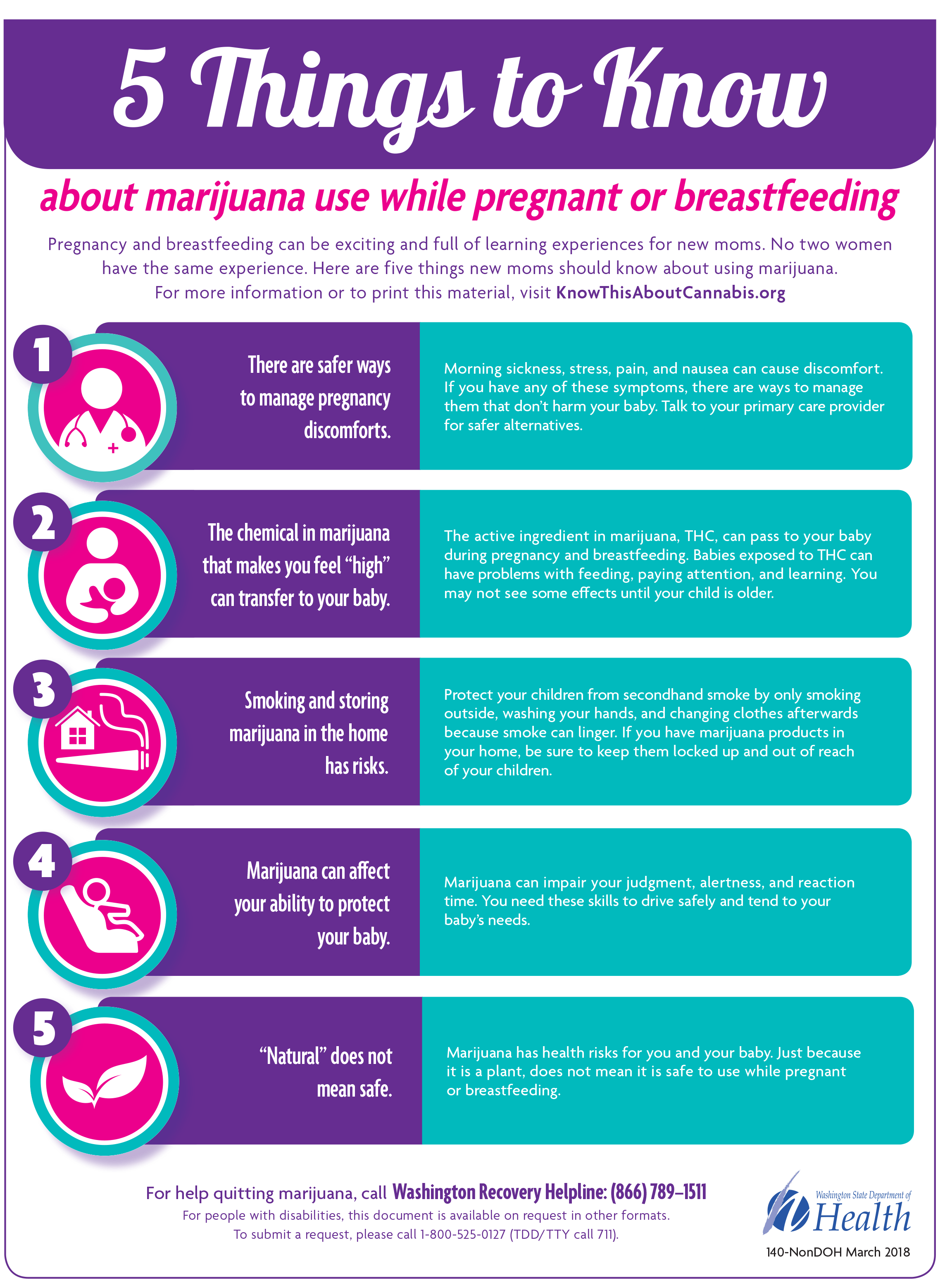
If you have an Android smartphone, iPhone, iPad or iPod touch, you can download the free One You Drinks Tracker from Google Play or the iTunes App Store. It allows you to keep a drinks diary and get feedback on your drinking.
Read more about alcohol units.
Alcohol support services
If you have difficulty cutting down what you drink, talk to a midwife, doctor or pharmacist.
Confidential help and support is also available from local counselling services:
- Drinkline – the national alcohol helpline; if you're worried about your own or someone else's drinking, call this free helpline on 0300 123 1110 (weekdays 9am to 8pm, weekends 11am to 4pm)
- We Are With You – a UK-wide treatment agency that helps individuals, families and communities manage the effects of alcohol and drug misuse
- Alcoholics Anonymous (AA) – a free self-help group; its "12-step" programme involves getting sober with the help of regular support groups
Find your nearest alcohol support services.
Read more advice on cutting down your drinking.
Find maternity services near you.
Page last reviewed: 29 January 2020
Next review due: 29 January 2023
Alcohol during pregnancy | March of Dimes
Don’t drink alcohol if you’re pregnant, trying to get pregnant or think you may be pregnant.
Alcohol can cause problems for your baby at any time in pregnancy, even before you know you’re pregnant.
Drinking alcohol during pregnancy makes your baby more likely to have premature birth, birth defects and fetal alcohol spectrum disorders.
How does drinking alcohol during pregnancy affect your baby’s health?
Drinking alcohol at any time during pregnancy can cause serious health problems for your baby. Alcohol includes wine, wine coolers, beer and liquor.
When you drink alcohol during pregnancy, the alcohol in your blood quickly passes through the placenta and the umbilical cord to your baby.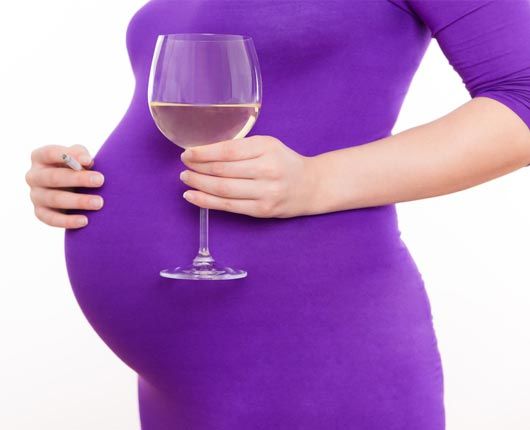 The placenta grows in your uterus (womb) and supplies the baby with food and oxygen through the umbilical cord. Drinking any amount of alcohol at any time during pregnancy can harm your baby’s developing brain and other organs. No amount of alcohol has been proven safe at any time during pregnancy.
The placenta grows in your uterus (womb) and supplies the baby with food and oxygen through the umbilical cord. Drinking any amount of alcohol at any time during pregnancy can harm your baby’s developing brain and other organs. No amount of alcohol has been proven safe at any time during pregnancy.
There’s no safe time to drink alcohol during pregnancy. Alcohol can cause problems for your baby any time during pregnancy, even before you know that you’re pregnant. You may be pregnant and not know for 4 to 6 weeks.
Drinking alcohol during pregnancy increases your baby’s chances of having these problems:
- Premature birth. This is when your baby is born before 37 weeks of pregnancy. Premature babies may have serious health problems at birth and later in life.
- Brain damage and problems with growth and development
- Birth defects, like heart defects, hearing problems or vision problems. Birth defects are health conditions that are present at birth. Birth defects change the shape or function of one or more parts of the body.
 They can cause problems in overall health, how the body develops, or in how the body works.
They can cause problems in overall health, how the body develops, or in how the body works. - Fetal alcohol spectrum disorders (also called FASDs). Children with FASDs may have a range of problems, including intellectual and developmental disabilities. These are problems with how the brain works that can cause a person to have trouble in learning, communicating, taking care of himself or getting along with others. They also may have problems or delays in physical development. FASDs usually last a lifetime. Binge drinking during pregnancy increases your chances of having a baby with FASDs. Binge drinking is when you drink four or more drinks in 2 to 3 hours.
- Low birthweight (also called LBW). This is when a baby is born weighing less than 5 pounds, 8 ounces.
- Miscarriage. This is when a baby dies in the womb before 20 weeks of pregnancy.
- Stillbirth. This is when a baby dies in the womb after 20 weeks of pregnancy.
How can you keep your baby safe from alcohol during pregnancy?
If you don’t drink alcohol during pregnancy, your baby can’t have FASDs or any other health problems caused by alcohol. If you're pregnant or even thinking about getting pregnant, don’t drink alcohol.
If you're pregnant or even thinking about getting pregnant, don’t drink alcohol.
Some women may drink alcohol during pregnancy and have babies who seem healthy. Some women may have very little alcohol during pregnancy and have babies with serious health conditions. Every pregnancy is different. Alcohol may hurt one baby more than another. The best way to keep your baby safe from problems caused by alcohol during pregnancy is not to drink alcohol when you’re pregnant.
If you’re pregnant, trying to get pregnant or think you may be pregnant, don’t drink alcohol. When you do get pregnant, get regular prenatal care (medical care you get during pregnancy). Tell your health care provider if you need help to stop drinking alcohol.
How can you stop drinking alcohol during pregnancy?
You may want to drink alcohol during pregnancy. Alcohol is often part of social activities, like parties or sports events. You may be used to having a glass of wine with dinner or at the end of a busy day. Giving up alcohol during pregnancy may be hard.
Giving up alcohol during pregnancy may be hard.
Here are some tips to help you stop drinking alcohol:
- Think about when you usually drink alcohol. Plan to drink other things, like fruity drinks or water. Use a fun straw or put an umbrella in the glass to make it seem more fun.
- Stay away from situations or places where you usually drink, like parties or bars.
- Get rid of all the alcohol in your home.
- Tell your partner and your friends and family that you’re not drinking alcohol during pregnancy. Ask them to help and support you.
If you need help to stop drinking, here’s what you can do:
- Talk to your health care provider about alcohol treatment programs.
- Join an Alcoholics Anonymous support group.
- Use Substance Abuse Treatment Facility Locator on the Substance Abuse and Mental Health Services Administration (also called SAMSHA) website or call 1-800 662-4357.
Can your partner’s drinking affect your baby during pregnancy?
FASDs and other alcohol-related health conditions happen when you drink during pregnancy. Research is still being done to find out if alcohol harms a man’s sperm before a woman gets pregnant.
Research is still being done to find out if alcohol harms a man’s sperm before a woman gets pregnant.
More information
- Centers for Disease Control and Prevention (CDC)
- Substance Abuse and Mental Health Services Administration (SAMSHA)
Last reviewed: April, 2016
ALCOHOL AND PREGNANCY - Outpatient medical facility
The fact that you can not drink alcohol during pregnancy is known to most. However, different situations can arise in life: one woman is planning a pregnancy, continuing to drink alcohol on holidays in order to avoid uncomfortable questions; another drinks a glass of wine, unaware that she is already pregnant; the third during pregnancy cannot cope with the desire to drink beer, believing that "a little bit is possible." Let's look at these situations in more detail.
Alcohol consumption during pregnancy planning.
Alcohol is a toxin that adversely affects the human reproductive system.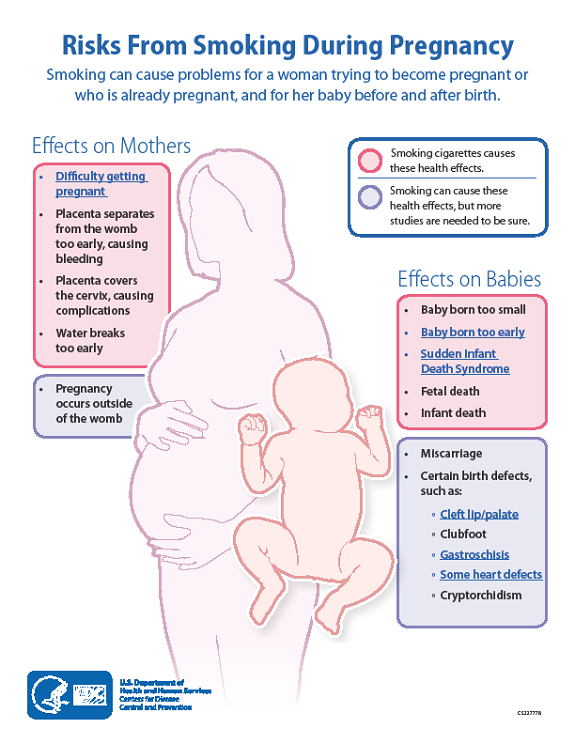 In women, alcohol consumption leads to disruption of the menstrual cycle and hormonal balance, which significantly affects the ability to conceive. There are also opinions that even episodic alcohol consumption can have a negative effect on the eggs, leading to their inferiority. Also, alcohol consumption affects the male reproductive system, significantly reducing the number of sperm capable of fertilization. Therefore, a couple planning a pregnancy should stop drinking alcohol at least 3 months in advance in order to increase the likelihood of conception.
In women, alcohol consumption leads to disruption of the menstrual cycle and hormonal balance, which significantly affects the ability to conceive. There are also opinions that even episodic alcohol consumption can have a negative effect on the eggs, leading to their inferiority. Also, alcohol consumption affects the male reproductive system, significantly reducing the number of sperm capable of fertilization. Therefore, a couple planning a pregnancy should stop drinking alcohol at least 3 months in advance in order to increase the likelihood of conception.
Drinking alcohol in the first weeks after conception.
Without a special examination, a woman usually discovers the fact of pregnancy at 3 weeks after conception, when the next menstruation does not come. By this time, the embryo has already firmly attached to the uterine cavity and began to receive nutrition from the mother's blood. If negative factors, including alcohol, affect him before the moment of attachment, then this will lead to his rejection and death, and he will simply leave the uterus with the next menstruation.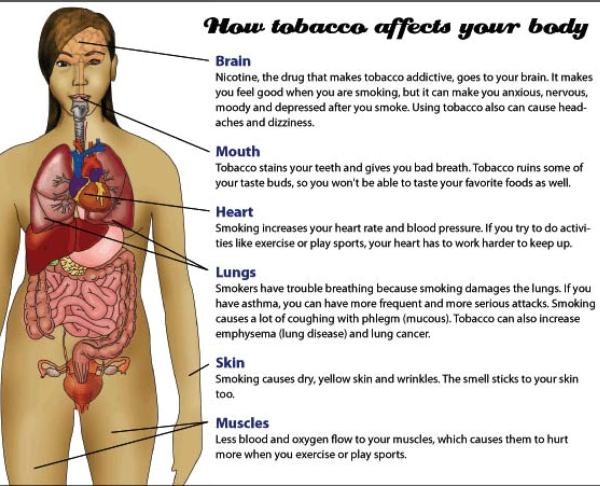 Thus, a woman may not know that she was pregnant.
Thus, a woman may not know that she was pregnant.
According to most scientists, if alcohol did not disrupt the attachment process and the embryo continued to develop, then this would not lead to the formation of malformations in it. Thus, alcohol accidentally drunk during the first two weeks after conception will either lead to the termination of pregnancy or will not affect its further development.
Alcohol use in early pregnancy.
As mentioned above, as early as the 3rd week after conception, the embryo begins to come into contact with maternal blood. This means that all the substances in the mother's blood come to him. including ethyl alcohol. From the 3rd to the 13th week of development, the laying of all the main systems of the body of the unborn child occurs and the effect of alcohol no longer leads to rejection and death of the embryo, but to the formation of malformations and deformities of the nervous, cardiovascular, and digestive systems.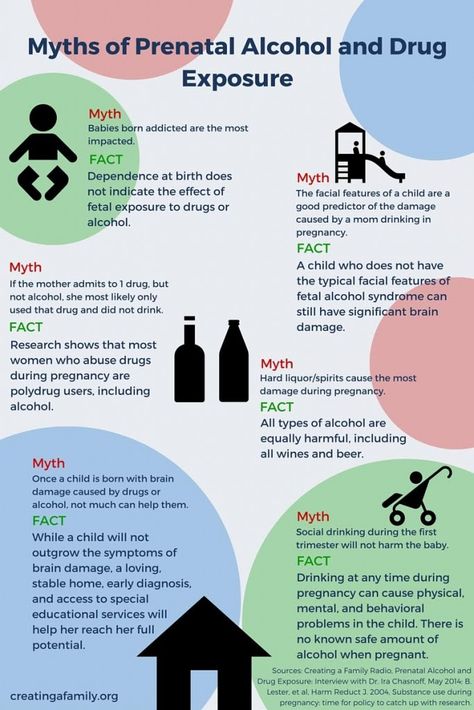
Alcohol use in late pregnancy.
The negative impact of alcohol on the course of pregnancy is observed after the 13th week. Ethanol and its decay products lead to spasm of the vessels of the placenta and umbilical cord, impairing the delivery of oxygen and nutrients, leading to a delay in the development of the fetus, disruption of its nervous system and brain. A prolonged lack of oxygen can even lead to the death of a child. Violation of the nervous system in the prenatal period leads to problems in the later life of the child - such children have reduced stress resistance, problems in learning, in communication, a tendency to mental illness and alcohol consumption.
The systematic use of alcohol during pregnancy leads to the formation of fetal alcohol syndrome in a child - this is a complex of physical, mental and intellectual abnormalities in a child that cannot be treated.
Thus, alcohol and pregnancy are not compatible and it is necessary to refuse it at the planning stage.
You need to understand that one glass of wine, drunk before 2 or after 13 weeks of pregnancy, most likely will not lead to disastrous consequences, but is it worth the risk? Remember that your child will “drink” half of this glass.
What happens to the child if the mother drinks alcohol?
03.12.2019
Alcohol and pregnancy are incompatible - doctors do not get tired of talking about this to expectant mothers. But pregnant women sometimes allow themselves to skip a glass of wine, thinking that nothing bad will come of such an amount. However, alcohol can interfere with fetal development at any stage of pregnancy, even very early.
Studies show that excessive (four or more drinks at a time) and/or regular drinking by an expectant mother puts the fetus at the greatest risk of serious problems. But even a smaller amount of alcohol can be harmful, since there is no safe dose.
Alcohol easily passes from the mother's bloodstream into the child's bloodstream, which can affect the development of the brain and other vital organs, structures and physiological systems of the baby's body, leading to malformations that can begin in a child in early childhood and last a lifetime.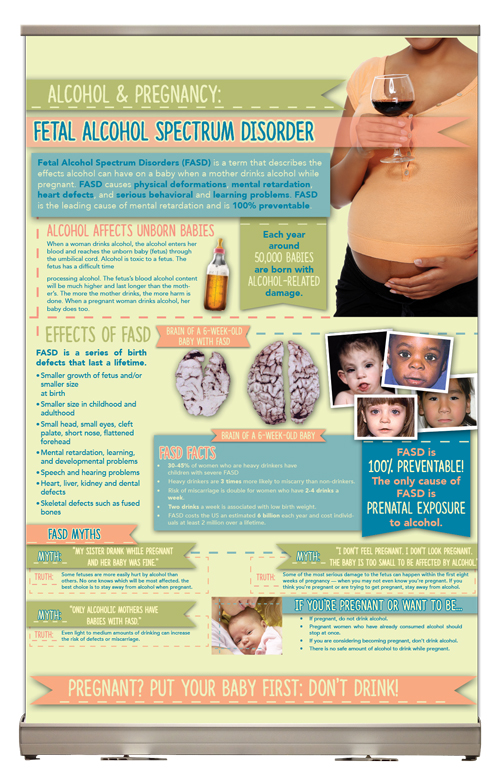 The most profound effects of prenatal alcohol exposure are brain damage and associated behavioral and cognitive impairment.
The most profound effects of prenatal alcohol exposure are brain damage and associated behavioral and cognitive impairment.
Scientists define a wide range of effects and symptoms caused by prenatal alcohol exposure, termed "fetal alcohol spectrum disorders". These include conditions such as intrauterine alcohol syndrome, alcohol-related nervous system disorder, and alcohol-associated birth defects. All these cases have one common feature - damage to the central nervous system (CNS) as a result of prenatal alcohol exposure to the fetus.
The effect of alcohol on the CNS may be structural (eg, reduction in brain size, changes in certain areas of the brain) or functional (eg, cognitive and behavioral deficits, motor and coordination problems). Extended studies using modern imaging techniques (MRI, CT, etc.) have revealed differences in the structure and activity of the brain that are consistent with neuropsychological testing data, including a disorder in processing information from the senses, changes in cognitive processes and behavior in adults with the disorder alcohol spectrum of the fetus compared to healthy people.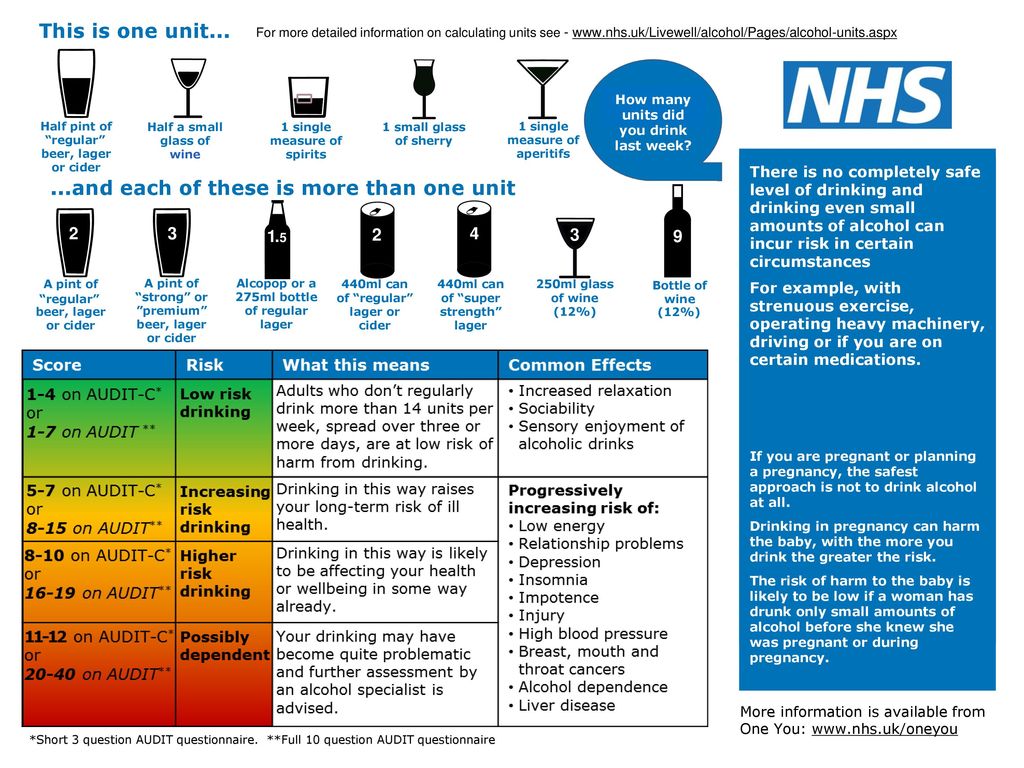
The most profound effects of prenatal alcohol exposure are brain damage and associated impairments in behavioral and cognitive functioning.
How are the disorders different?
Fetal alcohol syndrome was the first form of alcohol spectrum disorder and is still the most well-known syndrome. It manifests itself with excessive alcohol consumption by the expectant mother during the first trimester of pregnancy. The impact of harmful substances on the fetus can disrupt the normal development of not only the brain, but also the face. Thus, in addition to CNS developmental anomalies, the child will have a specific pattern of three facial anomalies: narrow eye openings, a smooth area between the lip and nose (compared to a normal ridge), and a thin upper lip. Also, the baby may experience growth deficiency in utero and (or) after birth.
Partial fetal alcohol syndrome includes only some of the characteristics listed above.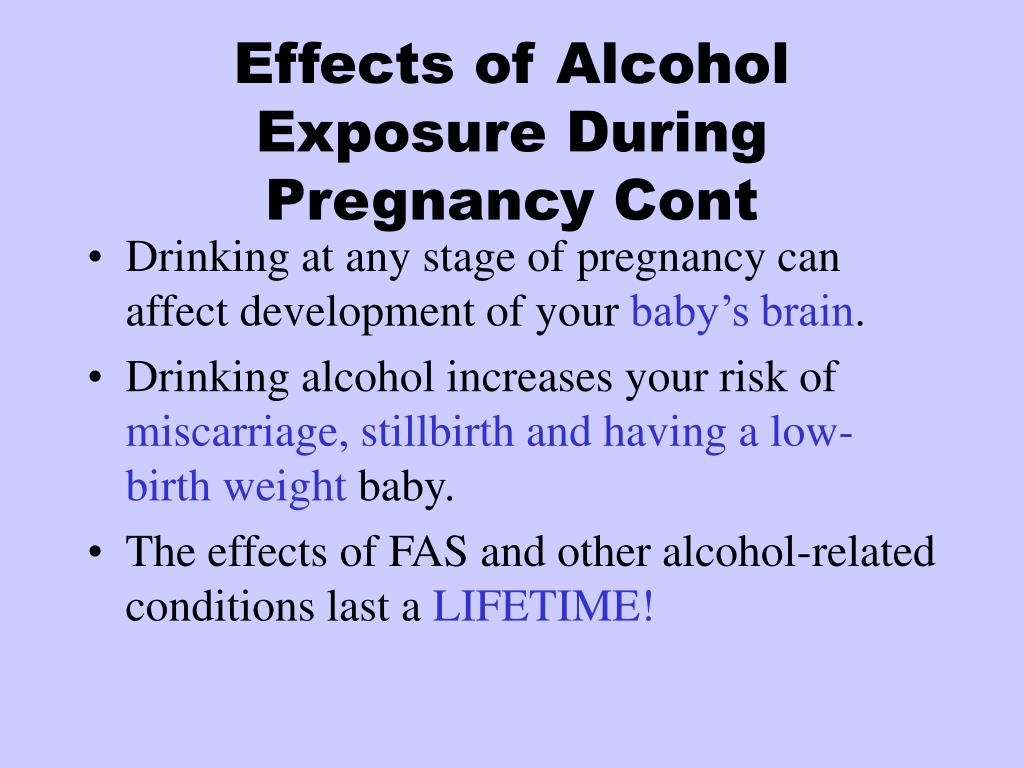
An alcohol-related disorder of the nervous system is characterized by disorders of the central nervous system, which may be structural or functional. Functional impairments include a complex pattern of cognitive (mental) or behavioral problems that do not correspond to the standard level of development at any given age in a child. At the same time, the reasons for this discrepancy cannot be explained by factors other than prenatal alcohol exposure. Facial abnormalities and growth retardation should not be present.
Alcohol-related birth defects include heart, kidney, bone, and other malformations; difficulties with vision and hearing; decreased function of the immune system. They are rarely considered separately, but rather are a secondary disorder that accompanies other fetal alcohol spectrum disorders.
What will happen to the baby in the future?
Every person whose mother may have abused alcohol during pregnancy experiences a combination of everyday turmoil that includes medical, behavioral, educational, or social problems in the following areas:
- learning and memorization;
- understanding and following directions;
- ability to hold attention;
- the ability to control emotions;
- communication and socialization;
- performing daily life skills (eg, eating, bathing, counting money, taking care of personal safety).
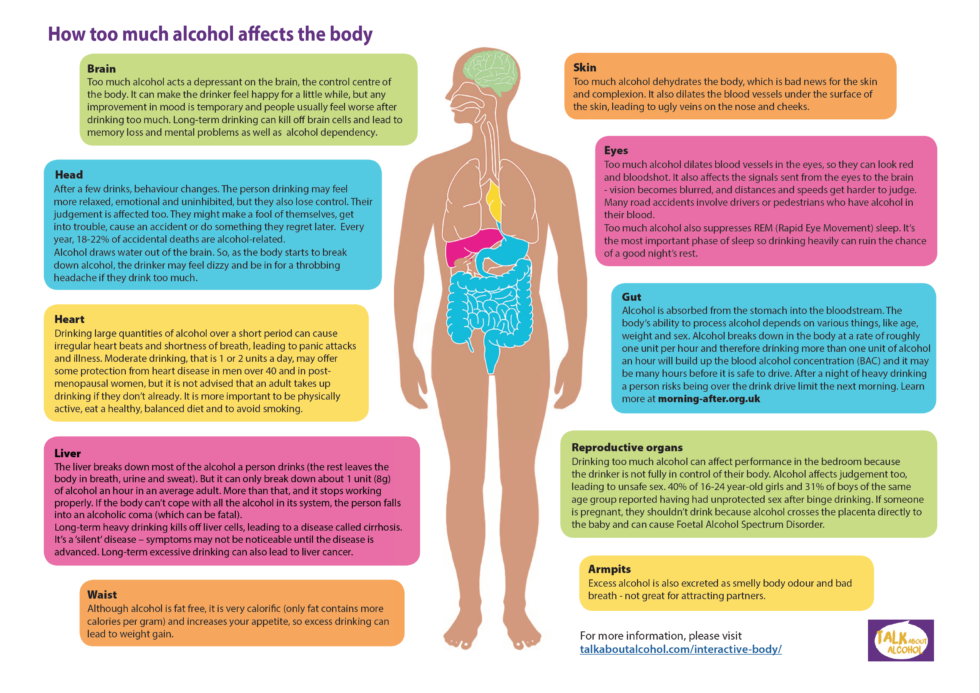
People with fetal alcohol spectrum disorder are more likely than others to make bad decisions, repeat the same mistakes, trust the wrong people, and have difficulty understanding the consequences of their actions. They are also more prone to disorders such as attention deficit hyperactivity disorder, depression, impulse control problems, alcoholism and drug addiction.
People with fetal alcohol spectrum disorder are more likely than others to make bad decisions, repeat the same mistakes, trust the wrong people, and have difficulty understanding the consequences of their actions.
Risk factors
Of course, it is impossible to argue that just one sip of champagne during pregnancy can provoke many anomalies in the development of the fetus and affect the psyche of the unborn child. But the medical community recommends completely avoiding any dose of alcohol during pregnancy.
There are risk factors that contribute to the development of undesirable consequences:
- amount of alcohol a pregnant woman drinks at a time;
- frequency of drinking by a pregnant woman;
- the stage of pregnancy at which a woman drinks alcohol, and how much she drinks during the formation of one or another body system in the fetus.

Prenatal alcohol exposure to children can be exacerbated if their mothers are malnourished, overweight, underweight, or smoke…
In addition, studies show that prenatal alcohol exposure affects children more if their mothers live in unfavorable conditions and experience high levels of stress. These may include, for example, social isolation, living in a society where excessive drinking is common and acceptable, and living in a society where resources for prenatal care are limited.
The prenatal effects of alcohol on children can be exacerbated if their mothers are malnourished, overweight, underweight, smoke…
How to help a child?
First aid for a child is the refusal of the expectant mother from alcohol. But if during pregnancy a woman allowed herself to drink alcohol and the child has symptoms of a fetal alcohol spectrum disorder, special tactics of education and training should be applied.